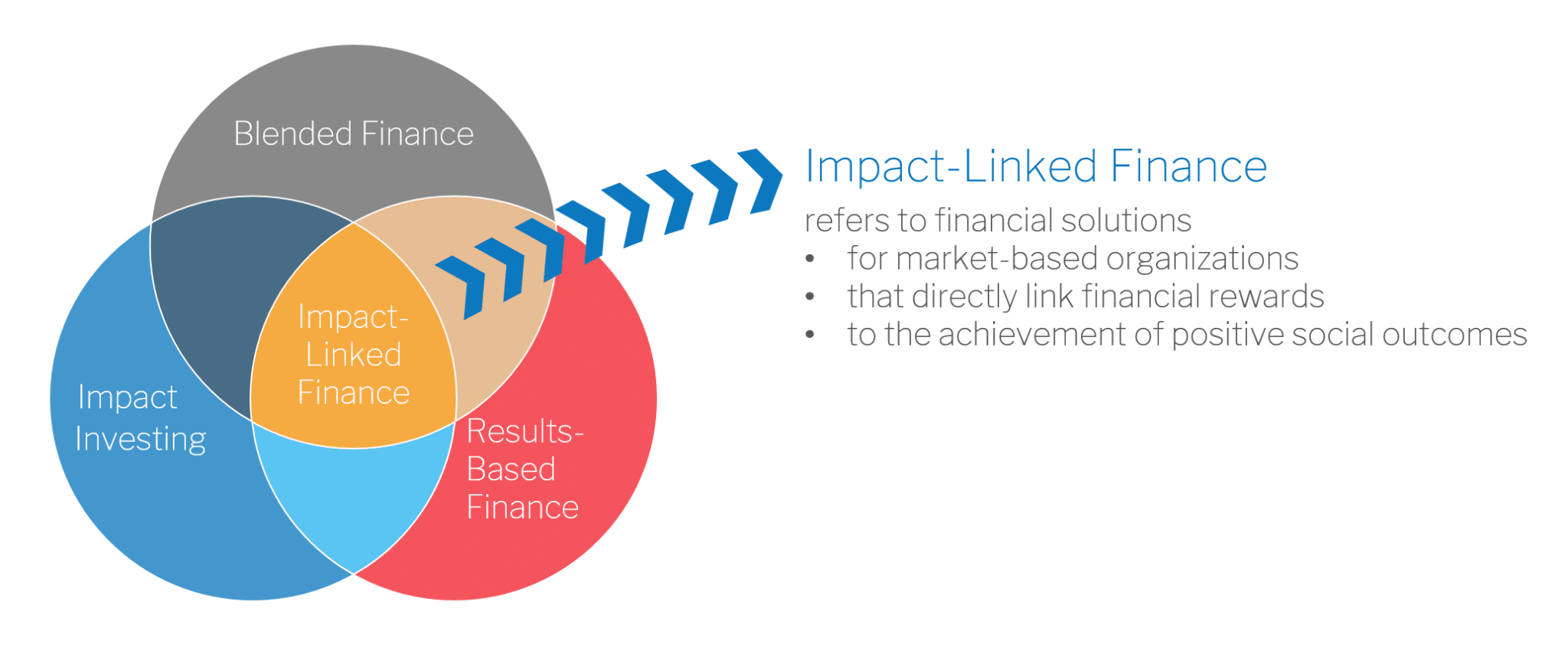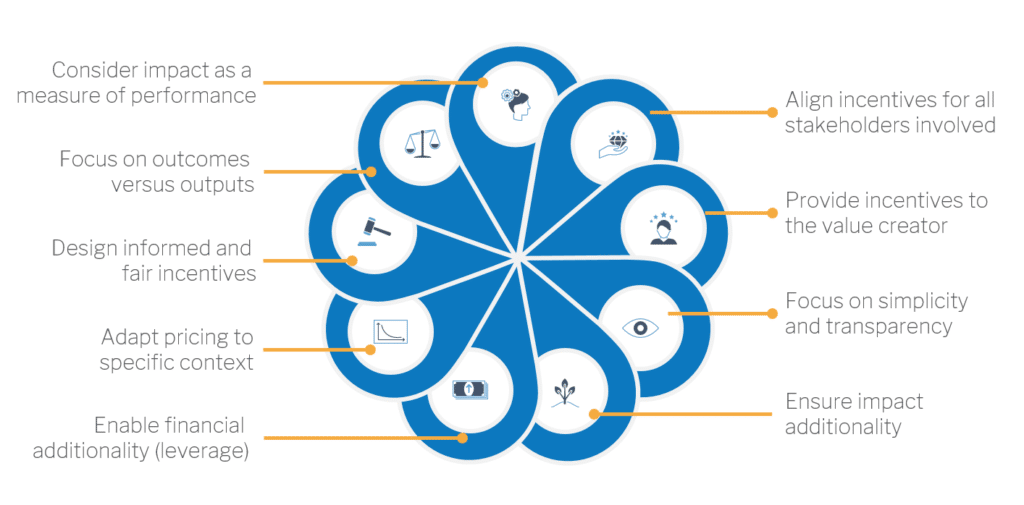Impact-Linked Finance
Impact-Linked Finance refers to linking financial rewards for market-based organizations to the achievements of positive social outcomes. It is a highly effective way of aligning positive impact with economic viability and lies at the intersection between blended finance, impact investing, and results-based finance.
Design & features
The most straightforward Impact-Linked Finance solution is paying enterprises that are raising growth capital directly for the positive impact they create (Social Impact Incentives or “SIINC”). But there is a multitude of other applications. Rewards for positive outcomes can be built into financing instruments across the board, from equity to debt to guarantees.
For example, linking the interest rate of a loan to a pre-defined impact performance effectively lowers financing costs and creates a strong incentive for the enterprise to outperform on positive impact. Put simply, it is a powerful way to ‘bake’ impact into the core of finance. Impact-Linked Finance does not necessarily focus on enterprises that are commercially less attractive. It rather enables and incentivizes market-based enterprises to accelerate and deepen their positive impact by generating additional outcomes (e.g. serving lower-income customers, in particular women, or focusing on more rural areas).
About Impact-Linked Finance
Curious how Impact-Linked Finance works concretely? In this video essay, you will find more information about the concept, design principles, benefits and real life examples.
Design principles
To deliver on its promise, Impact-Linked Finance has to consistently follow specific principles. Three core features and design principles that define and differentiate good practice are:
Background and future potential
The idea to provide rewards for positive impact to high-impact enterprises that seek to raise growth capital took shape in 2016 with the introduction of Social Impact Incentives (SIINC). SIINC was implemented for the first time by Roots of Impact in Latin America, in partnership with the Swiss Agency for Development & Cooperation (SDC) and the Inter-American Development Bank (IDB). Since then, the model has established itself in various programs across the globe and is on its way to becoming a standard tool for effective blended finance that places impact at the core.
In 2018, Roots of Impact together with the Boston Consulting Group (BCG) defined the term and practice of Impact-Linked Finance as the next logical step in the evolution of SIINC. The number and scope of Impact-Linked Finance transactions and programs are increasing exponentially. The Impact Linked Finance Fund established by Roots of Impact and iGravity is serving as an important milestone to introduce the next evolutionary step for more effective impact finance.
SIINC in practice
Would you like to understand how SIINC works in practice? Then this video gives you deeper insights based on real life cases.






